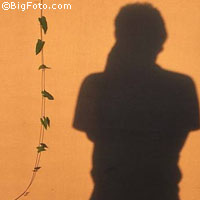Scientists recreate out-of-body experience
Scientists in Sweden have succeeded in giving 12 volunteers out-of-body experiences. People who have come close to death have sometimes spoken later of an out-of-body experience, during which they have seen themselves from above, or elsewhere in the room. Now a team at the Karolinska Institute in Sweden has developed a technique to recreate the sensation in fully conscious and healthy individuals. 'The idea for the study came to me several years ago,' says project leader Henrik Ehrsson, who also works as a research scientist at University College London. 'I wondered what would happen if you moved a person's eyes to somewhere else in the room. It has been found that the visual perspective is crucial in determining how the ego is experienced.' The method, described in the journal Science, involves placing two video cameras next to each other, like robot eyes, behind a volunteer. The image captured by the cameras is displayed inside a goggle-like contraption worn by the volunteer, who consequently sees his or her body from behind. Simply seeing one's own body as another would see it does not in itself constitute an out-of-body experience. Such an experience also requires that the person 'sense' their 'self' outside of their physical body. Dr Ehrsson and colleagues managed to produce just such a sensation. A team member stood behind the volunteer and touched him or her outside of the frame of the camera. The volunteer was able to feel the sensation, but could not see their body being touched. 'The brain then responds to the hand that touches the illusory body, whereupon the volunteer has a powerful experience of being several metres outside their actual body,' says Dr Ehrsson. 'The self has thus moved two metres in space and left the actual body, which instead feels like an empty shell, a doll.' To test the method further, Dr Ehrsson hit the 'phantom' body of the 12 volunteers with a hammer and measured the degree of skin sweating in response to the provocation. He found that the volunteers exhibited the same physiological stress response as they would were their real body threatened. Dr Ehrsson claims that that this new knowledge will enable scientists to investigate the 'self' for the first time. 'In the future it may be possible not just to control a person in a virtual environment, but to become the virtual person, that is to say one's self will be able to move to virtual persons,' says Dr Ehrsson.
Countries
Sweden



